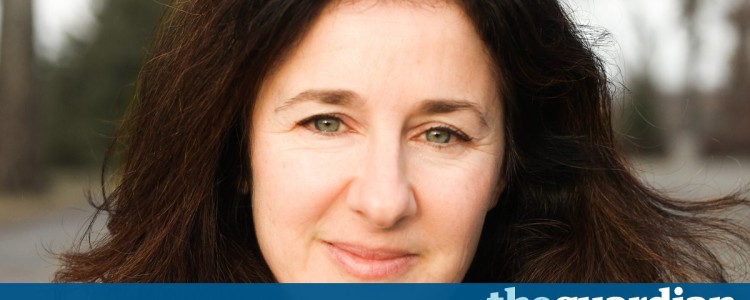Many men feel they get a raw deal from the family court system when it comes to custody and access to their children. But are specialist lawyers the answer?

Andrew Jones was shocked when his wife started a child custody battle in 2014. The couple had separated five months earlier after, he says, he caught her in a series of extramarital affairs. They had agreed on an informal settlement: he moved from their 2,700 sq ft home into a mobile home, paid her $500 a month in child support and could spend equal time with their five- and three-year-old kids. When he received the letter with a court date, Jones was not hopeful.
I felt like I wasnt going to have a life, says the 46-year-old who works as an HVAC technician. I heard so many horror stories of divorce and how pretty much women get all your paycheques and you have no way to live.
Jones (his last name was changed to protect the identity of his children) represented himself in court while his wife hired an attorney who he says is well-known in their North Carolina county for getting women anything and everything they want in court. The attorney, he says kind of gives you the feeling that she hates men. That all men are dogs and men dont want to be in their childs lives.
Jones nervously told the judge all he wanted was equal time with his kids. The following month, he received a letter from the court saying he owed $1,300 a month in child support a payment that would be big stretch on his wage of $26 an hour. He had already cleared out his savings to pay off his and his wifes combined debts, so to keep up with payments Jones sold his truck, $4,000 worth of tools, and stopped eating out or having a social life. But the money wasnt even the worst part: he was only allowed to see his kids eight days out of the month.
When you have kids it changes your life, he says. You cant go without them and [when you do] it wears you down emotionally and physically.
In family law, tales of fathers who pay exorbitant child support and rarely get to see their kids are commonplace. Recently, firms that specialize in mens divorce have popped up all over America to capitalize on so-called gender-based discrimination in courts. While many family law firms have seen a drop in divorce filings, these niche attorneys claim business is thriving.
Yet their very existence if controversial. Critics claim any good lawyer is equipped to handle a mans divorce and that instead of pushing for greater equality under the law, these firms perpetuate sexist stereotypes about women.
While family laws are gender neutral, theres no doubt that judges and lawyers interpret them based on certain beliefs. In many cases, judges still consider a woman the more natural caretaker, a stubborn holdover from the decades in which mothers only worked at home.
According to recent census data, 82% of mothers have primary custody of their children and 53% collect child support, compared with 29% of men. The numbers certainly suggest the need for mens divorce attorneys, but they lack important context: less than 5% of child support cases are actually settled in court, which means most parents decide themselves that the mother should be the primary caregiver. After all, a Pew survey shows married women spend twice as much time with their kids than their husbands do.
But Joseph Cordell, founder of the largest mens divorce-focused firm in America, says the stereotypes of mothers as nurturers and men as providers leads to systemic discrimination against fathers.
As a society weve made progress regarding gender in a number of areas, he says. But the dark corner of the room when it comes to civil rights, I can tell you, is dads rights in family courts.
The most common issues, he says, are that men rarely get equal access to their children and are often victims of false abuse allegations. Cordell estimates that 85% of temporary restraining order requests during divorces are mere tactics. Margaret Ryznar, an associate law professor at Indiana University, says her research shows a minority of women seek protective orders during divorce and that since domestic abuse is a he-said, she-said crime its often impossible to prove whos lying and whos not.
Kirby Ingles, who lives in Missouri, says he experienced bias during the 2009 custody battle for his five-year-old son. His attorney, who did not specialize in mens divorce, told him that the court judge would most likely lean towards [your ex-wifes] side because the child is five or six years old so needs their mother. Ingles wanted more custody and joint decision-making but was told this is how judges usually rule. They didnt really want to do the work and put up a fight and do any digging in the case, he says.
Ingles wife got primary custody, but he has hired a mens divorce lawyer to renegotiate his child support payments after being hit with a decrease in his salary. He says his new advocate is more sincere and compassionate to his needs than a regular family law lawyer and is more equipped to deal with specific issues that affect him such as father alienation.
But not all experts think mens divorce specialists provide added value. Ryznar thinks regular family law attorneys are equipped to handle any case and that the niche mens firms are largely a marketing ploy to drum up business.
Many also see an underlying sexism in firms that specialize in fathers rights, a flagpole issue of the misogynistic mens rights movement. Ryznar says that while stay-at-home moms are less common these days, working women still do most of the domestic work, which has a negative impact on their salaries. Courts take into account and compensate [mothers] for the fact that [they] took hits to their career to take care of kids, she says. These mens divorce firms perpetuate the stereotype of a woman whos just after her husbands money. That is not true in many real cases.
But Cordell, who is a supporter of the mens rights movement, finds these arguments absurd. He views the treatment of men in divorces as a civil rights issue, equating their struggle for equality with that of black people fighting against racism and segregation in the south. To suggest to me that guys asking for fairness in family court are guilty of some sort of anti-feminist position or sexism is beyond response, he says. Its an insult to guys.
Of course, some mens rights attorneys hold less extreme views. Anne Mitchell, who opened one of the first fathers rights practices in the 1990s, is anti- angry mens organizations but says the stereotype that most men want to dodge child support is also not true.
Overwhelmingly guys [are] not looking for custody or to screw their exes, she says. Theyre just looking to be more involved in their childrens lives than the typical still default schedule: every other weekend and one day during the week. Mitchell, who no longer sees clients, strove to give fathers a reality check about which legal battles were worth fighting.
As a society we have really come to demonize men. Theres just definitely a faction that believes all boys have the potential to grow up as rapists and are angry, she says. Without the right coaching [men] show up at courts looking angry and that feeds right into the bias. Mitchell always tried to keep dads out of court, preferring to settle matters in counseling a strategy she said most firms focused on billable hours unfortunately avoid.
Theres no doubt Jones, the man struggling to afford child support, was in a better situation before stepping foot in a courtroom. About a year and a half after his initial appearance, he returned to court with a lawyer to argue for more visitation rights. He was unsuccessful his ex-wifes lawyer argued that he was an unfit father because he whoops his kids butts with a belt to discipline them, which he admits is true, and is often on call for work.
But without regular access to his kids, Jones says his life has deteriorated. His ex wouldnt let him talk to their kids on the phone and he stopped getting notified by their school about report cards and field trips.
Jones began lashing out at colleagues, and was written up so many times by management that he was fired. His new gig pays less $22 an hour and as a result hes more than $5,000 behind on his child support payments and $2,200 behind in rent. Now when Jones sees his kids, he cant even afford the $10 to take them to their favorite place, a bounce house with inflatable slides.
Im home alone and have no money to go nowhere, he says. I cant even get my kids something. I dont wish this for nobody. I feel like a homeless guy with a job.
Read more: https://www.theguardian.com/lifeandstyle/2016/oct/15/fathers-rights-divorce-lawyers











